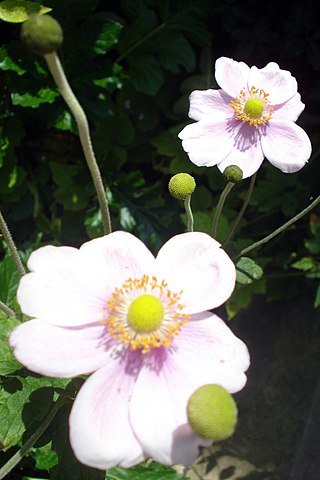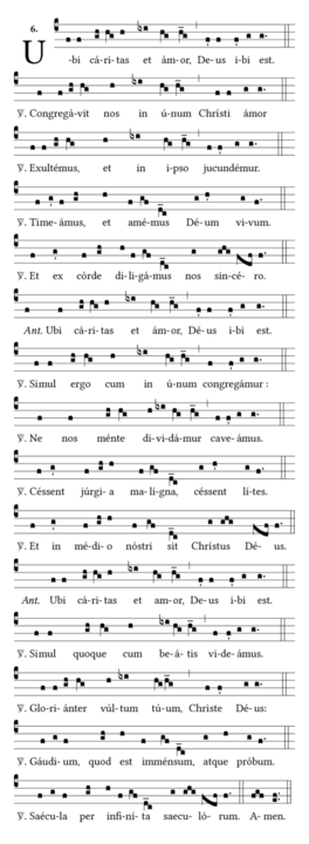 By Julie Gibbons from Scotland - Budding White Flowers, CC BY-SA 2.0, https://commons.wikimedia.org/w/index.php?curid=61437517 By Julie Gibbons from Scotland - Budding White Flowers, CC BY-SA 2.0, https://commons.wikimedia.org/w/index.php?curid=61437517 A botanical theme of growth. Of life emerging out of seeming death. Coaxed into being by the Spirit. "Lied to the Flowers" is a poetic song of color and variations for the organ by the aptly named Flor Peeters. It is movement four from his Lied Symphony for organ, a programmatic ode to nature also celebrating the ocean, desert, mountains, and sun. The essence of flowers is suggested with Peeters' specific colored registration and evolving variations on the chant-like flower motif. The Spirit is called to dwell within us in J.S. Bach's glorious setting of "Komm, Gott Schöpfer, heiliger Geist" (Come, God Creator, Holy Ghost.) It is a chorale partita in two parts: the first section presents the cantus firmus in the soprano followed by a repetition in the pedal overlayed with a flowing manual ritornello symbolizing the rushing wind of the Spirit. This week's musical offering will be the well-known "Meditation" from Thais played by violinist Amy Welsh. Consider it a brief moment of reflection, calm, and inner silence as we virtually worship together this Sunday.
0 Comments
 By Fritz Luckhardt - This image is part of the Portrait Collection Friedrich Nicolas Manskopf at the library of the Johann Wolfgang Goethe-University Frankfurt am Main.ID: 5461320 U.S. Public Domain https://commons.wikimedia.org/w/index.php?curid=38734524 By Fritz Luckhardt - This image is part of the Portrait Collection Friedrich Nicolas Manskopf at the library of the Johann Wolfgang Goethe-University Frankfurt am Main.ID: 5461320 U.S. Public Domain https://commons.wikimedia.org/w/index.php?curid=38734524 Two selections from Johannes Brahms' Eleven Chorale Preludes will be heard in this Sunday's 11 a.m. streaming service. Composed in 1896, a year before his death, the chorale preludes contain a Baroque sensibility but through the lense of the 19th century. Herzlich tut mich erfreuen ("My Faithful Heart Rejoices") is based on a 16th century hymn encouraging one to act from the heart in service to God. Mein Jesu, der du mich zum Lustspiel ewiglich ("My Jesu, Thou who me to delight forever") is setting of a now extinct German hymn extolling the virtue of serving the Light. Soprano Blair Carpenter and I will offer our arrangement of the choral anthem "The Lord Is My Light and My Salvation" by Rosephanye Powell. Based on Psalm 27, the text relates the wisdom of trusting in God who can even make the blind see.  By Unknown author - [1], Public Domain, https://commons.wikimedia.org/w/index.php?curid=41661485 By Unknown author - [1], Public Domain, https://commons.wikimedia.org/w/index.php?curid=41661485 Agape love, rebirth, and the transformative work of the Holy Spirit: three concepts intertwined beautifully in this Sunday's reading of John 3.1-17. The ancient Latin text "Ubi caritas et amor, Deus ibi est" (Where charity and love are, there God is) refers to agape love and is traditionally associated with the Washing of Feet rite on Maundy Thursday in Catholic and some Protestant traditions. Contemporary settings of this text include works by Maurice Duruflé, Paul Halley, David Conte, and this Sunday morning's offering by Norweigan composer Ola Gjeilo. The anthem is also another selection from the March 16 Ola Gjeilo concert the Chancel Choir will participate in at Alice Tully Hall, Lincoln Center in New York City. The Gregorian chant melody associated with the text, composed between the 4th and 10th centuries, serves as the pedal cantus firmus in Jeanne Demessieux's beatific setting of the tune during the Prelude. A Hymn to the Spirit, "Come Down, O Love Divine," commonly associated with the tune Down Ampney, is given a subtle tango inflection by contemporary composer Mark Sedio for the 9:00 a.m. communion time. To close the morning services, Camil Van Hulse provides an arrangement of the 17th century Lutheran hymn "Upon the Cross Extended" relating the life-giving power of Jesus' ministry summarized in these words from verse 7: "Your cross I place before me; Its saving pow'r restore me." At the 6:00 p.m. service, cantor Blair Carpenter and ukulelist Stuart Yoshida lead you in songs of the spirit, love, and the wilderness as we continue the Lenten journey. |
Details
|

 RSS Feed
RSS Feed